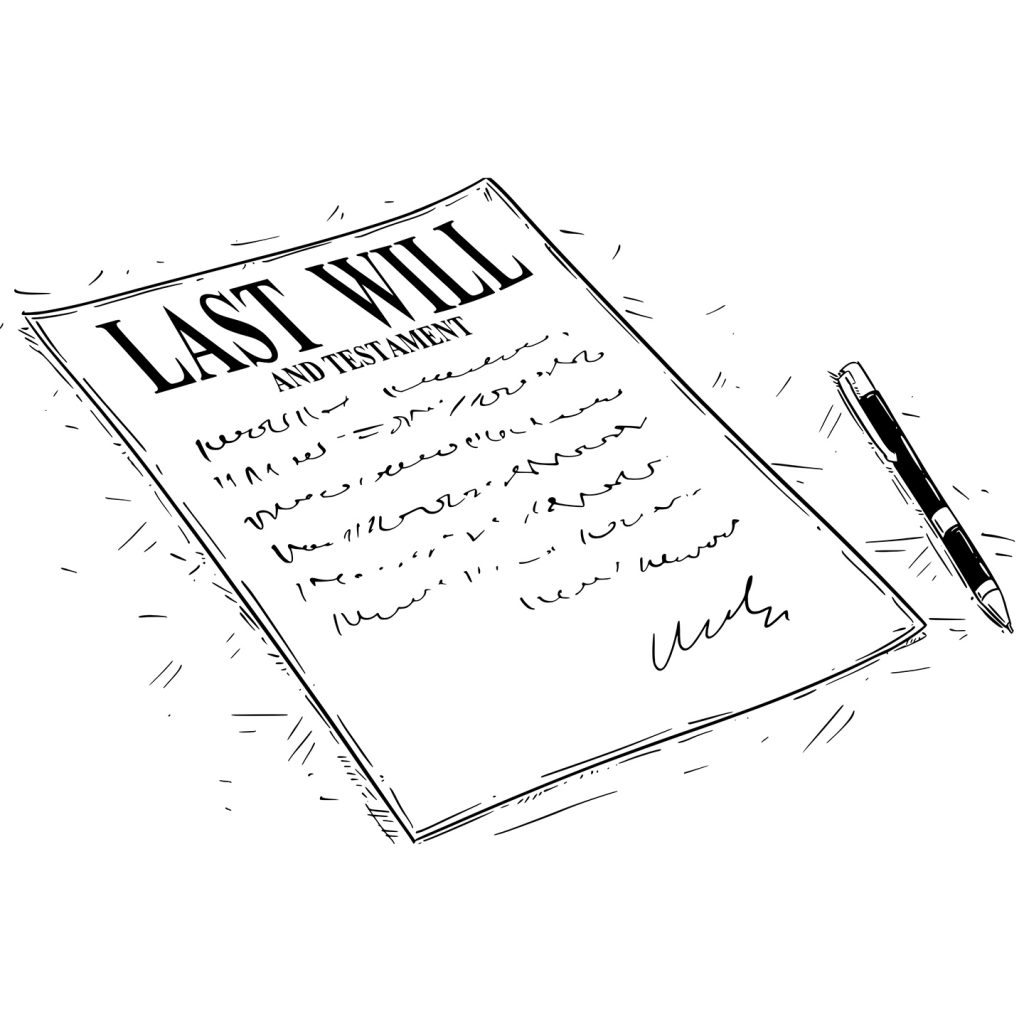Who Inherits when there is no Will?
If a loved one dies without leaving a Will, their estate will be divided according to the standard rules of intestacy as set out by the government. These rules strictly define who inherits depending on what surviving family the deceased has and the size of the estate.
How intestacy rules work
Is there a surviving spouse or civil partner?
If so and the estate is worth less than £250,000, the entire estate will pass to the surviving spouse or civil partner.
If the estate is worth more than £250,000 and the deceased has surviving children, grandchildren or other direct descendants (e.g. great-grandchildren), the surviving spouse/civil partner will inherit all of the deceased’s assets (including property) up to a value of £250,000 and all personal possessions.
The remainder will be split 50:50 between the spouse/civil partner and the deceased’s children or other direct descendants. If the deceased had a child who predeceased them, their share will pass to their own children or direct descendants.
If the estate is worth more than £250,000 and the deceased has no surviving children or other direct descendants, the entire estate passes to their spouse/civil partner.
What if the deceased has no surviving spouse or civil partner?
If the deceased has no surviving spouse/civil partner, their estate will be shared equally between any children they have. Again, if they have a child who has predeceased them, that child’s share of the inheritance will pass to their direct descendants instead.
If the deceased has no surviving spouse, civil partner, children, grandchildren or other direct descendants, other relatives will then be in line to inherit.
Which other relatives can inherit?
The other relatives who can potential inherit are ranked in priority order according to the rules of intestacy.
- Parents – If the deceased has surviving parents, their entire estate will be divided between them.
- Siblings – Surviving siblings are next in line. Again, the entire estate will be split equally between them and a deceased sibling’s share will pass to their own children or other direct descendants if a sibling has predeceased.
- Half-siblings – Half-siblings can only inherit if there are no full siblings. The entire estate will be split equally between them and their share will also pass to their children or other direct descendants if a half sibling has predeceased.
- Grandparents – The estate will be split equally between any surviving grandparents.
- Aunts and uncles – Again, the estate will be split equally between them and their share will pass to their own children if an Aunt or Uncle has predeceased.
- Half-aunts and half-uncles – Again, these can only inherit if there are no full aunts and uncles. The entire estate will be split equally between them and their share will pass to their own children if a half- Aunt or half-Uncle has predeceased.
What if the deceased has no eligible relatives?
If the deceased has no relatives who are eligible to inherit the estate, the whole estate will then pass to the Crown. You may then be able to apply for a grant from the estate if you could have expected to benefit from it, for example if you lived with the deceased or cared for them.
What to do if a loved one dies without leaving a Will?
If a loved one has died without leaving a valid Will, we can advise you on your legal rights and responsibilities. We have to check the National Will Register, Certainty, to see if a Will is located before any other work is undertaken.
Normally, the next of kin will administer the estate and may need to apply for a grant of representation to become the ‘administrator’ of the estate. This means you will be able to able to make sure the estate is divided properly and sort out any issues such as inheritance tax.
Our Wills and probate team can guide you through the entire process, making this difficult time easier while giving you the confidence that you have carried out all of your legal responsibilities correctly.
To find out more about our Wills and probate services, call us today on 7380 813659.
Latest Articles
Insights, events and opinions on the latest law, legislation and policies.
-
 Do I need a will if I’m under 50?Read ArticleIf you're someone that likes to weigh up the costs and benefits of something, then creating a will when you're under the age of 50 may not seem worthwhile. However, this consensus generally comes from the notion that wills cost hundreds of pounds to make - all whilst having an extensive meeting(s) with a lawyer.
Do I need a will if I’m under 50?Read ArticleIf you're someone that likes to weigh up the costs and benefits of something, then creating a will when you're under the age of 50 may not seem worthwhile. However, this consensus generally comes from the notion that wills cost hundreds of pounds to make - all whilst having an extensive meeting(s) with a lawyer. -
 Our Terms of BusinessRead ArticleThis document (‘Our Terms’ or ‘These Terms’), together with our ‘client care’ letter for each matter we work on, forms our entire agreement with you to provide legal services (‘our Agreement’). It is an important document and should be read carefully. If you are unsure of any part of These Terms you must contact us for clarification before we begin work for you.
Our Terms of BusinessRead ArticleThis document (‘Our Terms’ or ‘These Terms’), together with our ‘client care’ letter for each matter we work on, forms our entire agreement with you to provide legal services (‘our Agreement’). It is an important document and should be read carefully. If you are unsure of any part of These Terms you must contact us for clarification before we begin work for you.
